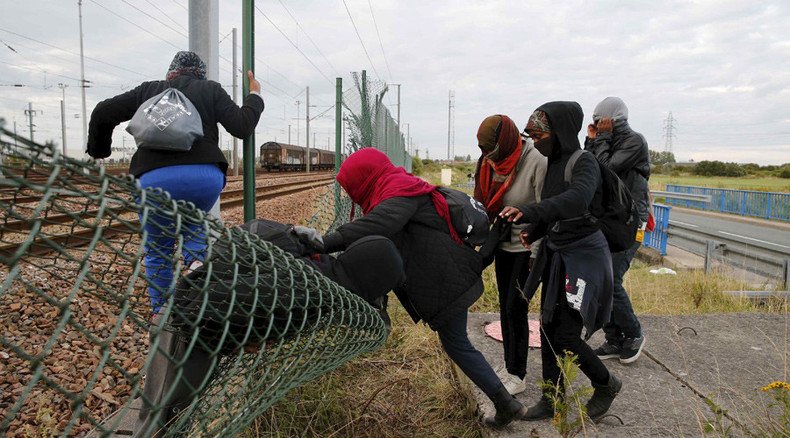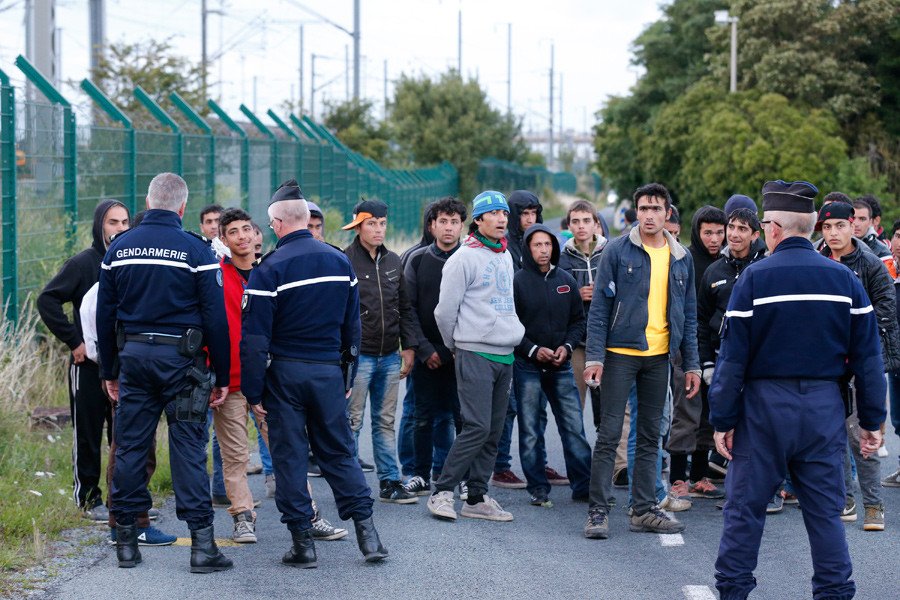'We propose sending the army to address Calais migrant crisis' - UKIP MP

The situation with migrants trying to reach the UK from the French port of Calais is very drastic and it keeps worsening, thus we need to send the army to assist with searching vehicles, lorries and trains, says James Carver, Euro MP for Britain's UKIP party.
Thousands of illegals have been storming the Channel Tunnel in a bid to reach the UK. France is beefing up its police presence near the tunnel, and Britain is to build bigger fences. There are even calls in Britain to send in the army to quell the migrant chaos in the French town of Calais.
READ MORE: Send military to tackle Calais migrant crisis, say police chiefs
RT: Your party isn't alone in suggesting troops be deployed to rein-in the migrant crisis in Calais. Isn't that a bit drastic? How bad is the situation?
James Carver: It’s drastic in how the army is used. What we are proposing is that the army are used in the UK - not sending them into Calais, but sending them into the UK to assist with regards to searching vehicles, lorries, trains and actually we’ve got a huge problem with the numbers coming in - 130 people yesterday. We’ve had former ministers from the Labor Party saying that these people are coming in every day.
RT: But is it actually getting worse on the ground?
JC: Of course it’s getting worse, it’s very drastic. Regrettably nine people have lost their lives. If one person yesterday lost their life that would be drastic, but if nine people lose their lives it’s a drastic situation.
RT: What would you do to deal with the root causes of the crisis if you are in charge?
JC: The main problem is of course open borders, free movement within the EU, within its 28 member states. So we have some people here from Calais would have started their journey in Hungary, some would have started in Greece, some would have started in Italy. What we need is member states taking control of the situation there rather than pushing it further West.

RT: Britain is blaming France of course, what do you think about that?
JC: I think it shows how difficult the situation the prime minister is in. The response from the French albeit quite late in the day is good news. But it shows they haven’t been taking the PM incredibly seriously. I would even contend they possibly don’t have that much respect for him. And if he is being treated like this on this issue, of the migrant crisis in Calais, how can he really be best to be in a situation to renegotiate with regards to Britain’s membership of the EU?
RT: Isn’t it all a bit easier for Britain as it’s actually away from the rest of Europe?
JC: Of course, but the problem is - we have UK’s economy- it is in a different situation to the economy in Italy, to the economy in Greece. We’re seeing some of these southern countries have got huge economic woes and we speak about it on a daily basis. For the UK to be in a position we’re in and to have these concerns - the Spanish, the Italians, the Greeks must just be exasperated by it.
RT: The UK and France have also decided to send the illegal migrants back home. But what if some are genuine refugees or asylum-seekers? Is it fair?
JC: The greatest tragedy of the free movement within the EU, I argue this consistently, is that successive politicians from across the political spectrum have somehow muddled up the issue of immigration with asylum. I’m the grandson of a Polish asylum seeker - my grandfather was a Polish-Jewish refugee. It seems to me that asylum and immigration have been muddled up. And until we get control of our borders, and get control of a proper immigration policy outside of the EU, away from this free movement, only then can we properly address all humanitarian obligations with regards to asylum.
The statements, views and opinions expressed in this column are solely those of the author and do not necessarily represent those of RT.
LISTEN MORE:
The statements, views and opinions expressed in this column are solely those of the author and do not necessarily represent those of RT.












